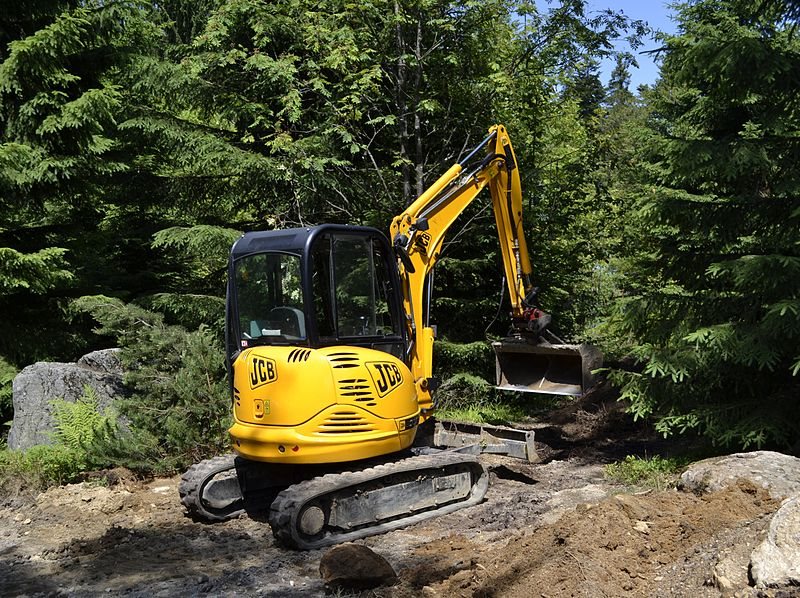When it comes to construction projects, excavators are some of the most versatile and valuable machines around.

However, with all of the different excavator makes and models on the market, it can be tough to know which one is perfect for your specific needs.
In this blog post, we’ll walk you through a few factors to consider when choosing an excavator so that you can make the best decision for your next project.
One of the most essential things to consider when choosing an excavator is the size of the job site. If you’re working on a vast construction site, you’ll need a giant machine that can handle more material. On the other hand, if you’re working on a smaller job site, you’ll need a smaller device that can maneuver in tight spaces.
Another essential thing to consider is the type of terrain you’ll be working on. If you’re working on rough terrain, you’ll need John Deere excavators to handle that environment.
Another factor to consider is the type of material you’ll be excavating. If you’re excavating soft soil, you won’t need as much power as you would if you were excavating hard rocks or concrete.
Finally, you’ll need to consider this when choosing an excavator. Various prices depend on the machine’s size, power, and features. You’ll need to determine exactly how much you’re willing to spend before making your final decision. You have to consider maintenance budget as well. All heavy equipment need proper and timely maintennace as well as replacement of certain parts as and when required, such as bobcat 7010163.
Read Also:
A hydraulic excavator uses a hydraulic pump to power its movement. The hydraulic pump is powered by a diesel engine or an electric motor. Hydraulic excavators are versatile and can be used for various tasks, such as digging holes, trenches, and foundations, demolishing buildings, and clearing land.
A crawler runs on tracks instead of wheels. This makes crawler excavators much more stable than wheeled excavators, which makes them ideal for working on uneven or slippery surfaces. However, crawler excavators are also much slower than wheeled excavators, which can be a disadvantage if you need to move around frequently.
A wheeled excavator is a specific type of excavator that runs on wheels instead of tracks. Wheeled excavators are much faster than crawler excavators but are less stable, making them more challenging to use on uneven or slippery surfaces.
A compact excavator is a type of excavator that is smaller in size than other types of excavators. Compact excavators are ideal for working in tight spaces or on small construction sites. However, they are not as powerful as larger excavators and can’t handle as much material.
A full-size excavator is a type of excavator that is larger than other types of excavators. Full-size excavators are more potent than compact excavators and can handle more material. However, they are not as maneuverable as compact excavators and can be more challenging to use in tight spaces.
The first important feature you need to consider is engine power. This is because the engine is responsible for providing the hydraulic power that runs the excavator. Hydraulic excavators usually have four-cylinder or six-cylinder engines, with the six-cylinder machines being more assertive.
The second feature is operating weight. This is because the heavier the machine, the more stability, and forces it will have while excavating. However, you also need to make sure that the machine is not too heavy for the type of work you’ll be doing.
The third feature to consider is bucket capacity. This is because a more giant bucket means you’ll be able to do more work in a shorter time. However, you also need to pin down the information that the excavator you choose has a bucket that’s comfortable for you to use.
The fourth feature to consider is reaching. This is because a longer reach means you’ll be able to excavate areas further away from your base of operations. However, you also need to qualify that the excavator you choose has a reach that’s comfortable for you to use.
The fifth thing to consider is cab comfort. This is because you’ll be spending a lot of time in the excavator’s cab, so it must be comfortable for you. Ensure that the taxi has enough legroom and headroom for you and that all controls are within easy reach while seated.
The last feature to consider is the ease of maintenance. This is because you’ll need regular maintenance on your excavator to keep it running properly. Ensure that the machine you choose is easy to maintain and that you have easy access to all parts that require regular servicing.
The cost of an excavator depends on the size and features of the machine. Compact excavators start at around $25,000, while full-size excavators can cost more than $100,000.
With proper maintenance, an excavator can last for more than 20 years.
The best way to choose the right excavator for your project is to consider the size of your construction site and the type of work you’ll be doing.
Choose a full-size excavator if you need a machine that can handle a lot of material. Choose a compact excavator if you need a machine that can maneuver in tight spaces.
A mini excavator typically weighs between 4,000 and 8,000 pounds (1,814 to 3,629 kilograms).
An excavator is a machine that digs holes and moves the earth, while a bulldozer is a machine that pushes the earth and clears land. Excavators typically have a longer reach and can dig deeper than bulldozers, while bulldozers are more powerful and can push more the earth.
There is no one-size-fits-all solution when choosing between the different types of excavators. The best way to decide which kind of excavator is right for you is to consider the specific needs of your project and then speak with a professional who can help you choose the best option for your needs!